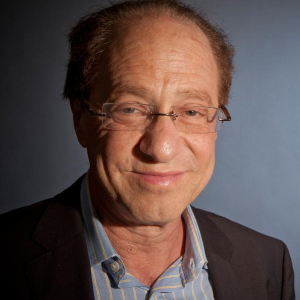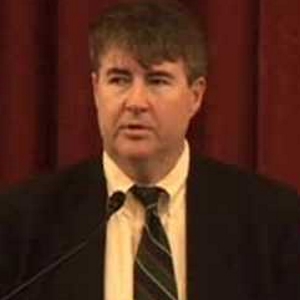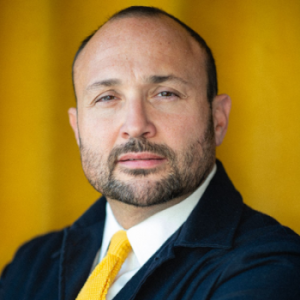Ray Kurzweil Speaker Biography
Author, Inventor, Futurist, Director of Engineering for Google and Chairman of Kurzweil Technologies
Ray Kurzweil is one of the world’s leading inventors, thinkers, and futurists, with a thirty-year track record of accurate predictions. Called “the restless genius” by The Wall Street Journal and “the ultimate thinking machine” by Forbes magazine, he was selected as one of the top entrepreneurs by Inc. magazine, which described him as the “rightful heir to Thomas Edison. PBS selected him as one of the “sixteen revolutionaries who made America.”
Inventor
Ray was the principal inventor of the first CCD flat-bed scanner, the first omni-font optical character recognition, the first print-to-speech reading machine for the blind, the first text-to-speech synthesizer, the first music synthesizer capable of recreating the grand piano and other orchestral instruments, and the first commercially marketed large-vocabulary speech recognition.
Honors and Awards
Among Ray’s many honors, he received a Grammy Award for outstanding achievements in music technology; he is the recipient of the National Medal of Technology, was inducted into the National Inventors Hall of Fame, holds twenty-one honorary Doctorates, and honors from three U.S. presidents.
Books
Ray has written six national best-selling books, including New York Times best sellers The Singularity Is Near and How To Create A Mind. His latest novel, Danielle: Chronicles of a Superheroine, is an Amazon Best Seller and was a Publisher’s Weekly Top 10 Children’s Fiction book. He is co-founder and Chancellor of Singularity University and a Director of Engineering at Google, heading up a team developing machine intelligence and natural language understanding.
Ray Kurzweil Speaking Topics
The Power of Ideas is Accelerating
Renowned author, inventor, and futurist, Ray Kurzweil, has a public track record of more than a quarter of a century of predictions with a stunning 86% accuracy rate, all based on his Law of Accelerating Returns which states that information technology is advancing exponentially -- doubling in price-performance, capacity, and bandwidth every year. Since 1990, Kurzweil has laid out these predictions in a series of books: The Age of Intelligent Machines (1990), The Age of Spiritual Machines (1999), The Singularity is Near (2005), and How to Create a Mind (2012). And now, in his forthcoming book, The Singularity is Nearer (2020), he presents new data and a fresh look to the future as we approach the steep part of the exponential. By questioning old assumptions and applying exponential thinking Ray Kurzweil explains how we will rewrite the software of life, rebuild the world atom by atom, and reinvent our intelligence, to solve the world’s grandest challenges.
Science, Technology, and Invention: Strategies to Create the Future
The democratization of innovation is a turbulent process with rapid creation, violent destruction, many winners and many losers. Despite the apparent chaos, we can discern predictable patterns. The pace of innovation itself is doubling every decade. The overall price-performance and capacity of every form of information technology grows exponentially, generally doubling in a year or less. As information technology achieves each new level of price-performance and capacity, new applications become feasible and existing business models lose their viability. Another implication is that the tools of disruptive change have been democratized. A couple of students created Google on their thousand dollar laptops. A few years later, a couple of undergraduates created Facebook with tools that everyone has. The rate of change is now so rapid that even three to five year business plans need to consider that every level of an industry will undergo major changes during that period. It’s not just the devices we carry around that are influenced by these exponential changes. Health and medicine is now an information technology with the collection of the human genome, the means of changing genes in a mature individual, and the ability to design interventions on computers and to test them on biological simulators. Even energy will be transformed as we apply nanotechnology to the design of solar panels and energy storage devices. The means to change the world are in everyone’s hands.
The Acceleration of Technology in the 21st Century: The Impact on Healthcare and Medicine
We are now at a pivotal time in health technologies. With the collection of the genome in 2003 and the advent of techniques such as RNA interference that can actually turn off the genes that promote disease and aging, medicine has transformed itself into an information technology. As such, medicine is now subject to the “law of accelerating returns,” meaning that these technologies will be a thousand times more powerful than today in ten years, and a million times more powerful in 20 years. Up until recently, health interventions were hit or miss. We'd find something that seemed to work with only crude models of how they worked. Drug development was called "drug discovery," basically finding things that worked rather than designing them. Today it is within our grasp to slow the aging process and take full advantage of advances in bio- and nanotechnology that have already begun and will be occurring at an accelerating pace in the years ahead. Ultimately, we will merge with our machines, vastly extending human health and longevity, and greatly increasing our intelligence.
The Acceleration of Technology in the 21st Century: The Impact on Business, the Economy, and Society
At the onset of the 21st century, it will be an era in which the very nature of what it means to be human will be both enriched and challenged, as our species breaks the shackles of its genetic legacy, and achieves inconceivable heights of intelligence, material progress, and longevity. The paradigm shift rate is now doubling every decade, so the twenty-first century will see 20,000 years of progress at today’s rate. Computation, communication, biological technologies (for example, DNA sequencing), brain scanning, knowledge of the human brain, and human knowledge in general are all accelerating at an even faster pace, generally doubling price-performance, capacity, and bandwidth every year. Three-dimensional molecular computing will provide the hardware for human-level "strong" AI well before 2030. The more important software insights will be gained in part from the reverse-engineering of the human brain, a process well under way. While the social and philosophical ramifications of these changes will be profound, and the threats they pose considerable, celebrated futurist Ray Kurzweil presents an inspiring vision of our ultimate destiny in which we will merge with our machines, can live forever, and are a billion times more intelligent...all within the next three to four decades.
Ray Kurzweil Books
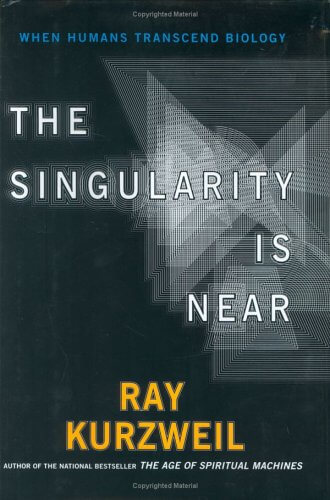
The Singularity Is Near: When Humans Transcend Biology
Purchase Book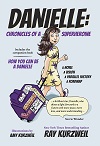
Danielle: Chronicles of a Superheroine
Purchase Book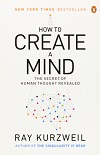
How to Create a Mind: The Secret of Human Thought Revealed
Purchase Book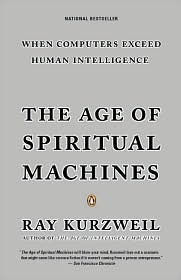
The Age of Spiritual Machines: When Computers Exceed Human Intelligence
Purchase BookRay Kurzweil Videos
Ray Kurzweil Speaker Testimonials
"Ray came in and really inspired our employees. His presentation was extremely well received, and many people in the audience expressed their gratitude for being in the presence of one of their true heroes. My inbox has been filled with thanks and expressions of how their perspective on their job has really changed. I don’t think we could have asked for much more than that!”
- | Dolby
"We are still excited and full with adrenaline following the exciting talk by Mr. Kurzweil. The presentation was a remarkable achievement. It was fluent and brilliant."
- | Olive Bay, Ltd.
"Ray's presence at an institution can have a transformative effect, and I can see it already in a flurry of emails expressing interest in teaching with technology, and especially Second Life. When we at Berklee chart our development in our use of technology, Ray’s visit and the impact of his ideas will be a milestone, causing a paradigm shift that helped us not only grow, but understand our growth."
- | Berklee College of Music
"His speech was great, a the trove of fascinating content. We wanted someone who would educate the audience about what's ahead, think strategically about the future and inspire them to be innovative. He nailed it. We are deeply appreciative."
- | Northwestern Mutual

